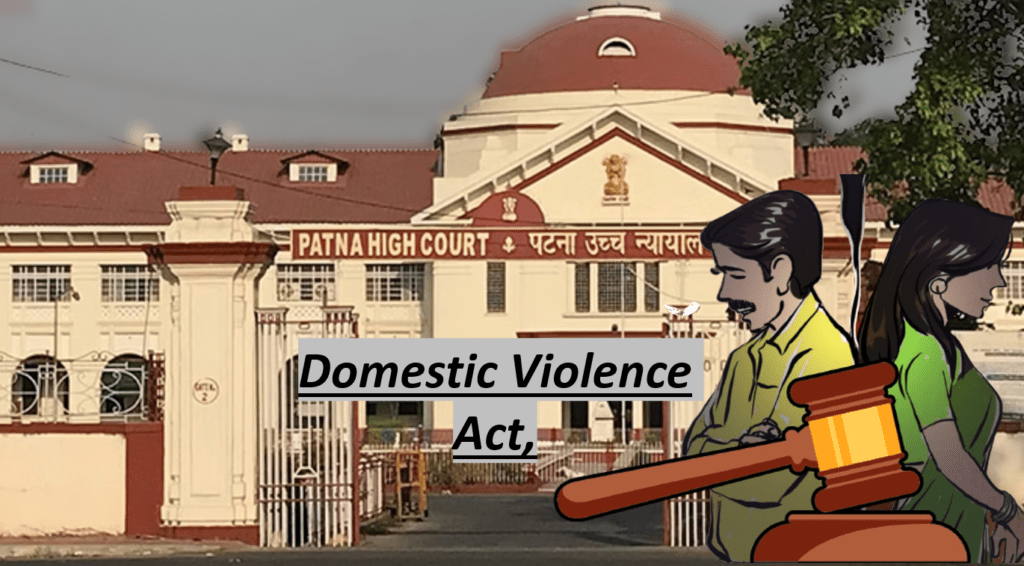
The Patna High Court recently ruled that Section 468 of the Criminal Procedure Code, which prohibits taking cognizance after the statute of limitations has expired, only applies to domestic violence cases at the stage of the Domestic Violence Act’s Section 32 (cognizance and proof of a breach of a protection order), where the issue of taking cognizance is raised.
Prior to Section 32 of the Domestic Violence Act, Justice Dr. Anshuman declared that Section 468 of the CrPC does not apply to the Domestic Violence Act.
The observations were made by the court in its decision on a Criminal Revision Application filed against two orders made by Muzaffarpur, Bihar’s Additional District & Sessions Judge and SDJM courts while exercising their authority under the 2015 Protection of Women from Domestic Violence Act.
The courts below instructed the petitioner in the orders to give his wife suitable and secure housing, either in the same house or a separate house, depending on her option, and to pay Rs. 20,000/- per month for her maintenance.
The petitioner’s attorney Chandra Mohan Jha presented three key objections to the orders in revision before the high court. The original court’s order and the trial court’s affirmation of it, he argued, should be overturned since the order for residence cannot be an interim order. Additionally, it was asserted that the Rs. 20,000/- maintenance payment each month was arbitrary and ought to be determined by the petitioner’s financial means. It was further argued that in order to grant relief under the Domestic Violence Act, the court must first determine that domestic violence actually exists. The attorney further contended that the limits on taking cognizance set forth in Section 468 of the Criminal Procedure Code applied to this case. However, the State’s attorney contended that both orders were made in compliance with the law. He further argued that Section 23 of the Act gives the court the authority to issue ex parte and interim orders.
The court stated that it is acknowledged that a woman who is the victim of domestic violence has the right to apply for both temporary and permanent remedy.
The court continued by stating that the directive to give the petitioner’s wife with suitable and secure housing in the main residence or in a separate residence and to pay Rs. 20,000 for her maintenance amounts to a protection order under Section 18 of the Domestic Violence Act.
When the court is prima facie convinced that domestic violence has happened or is likely to occur, the court stated, it may issue an injunction prohibiting the respondents. The court denied the revision and stated that the contested order should stand since it is essentially an interim decision.
SRISHTI BHARDWAJ, B.COM LL.B





0 Comments